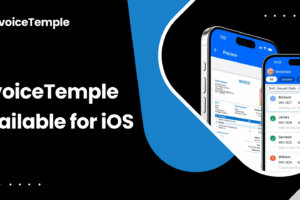Hey everyone! Welcome to Mortgage Fusion, your friendly place to learn about mortgages in Ontario. If you’re a business owner thinking about buying a property for your business – maybe an office, a store, or even a warehouse – that’s a really big and exciting step!
One of the important things you’ll need to think about is your commercial mortgage and, especially, the commercial mortgage rates Ontario. These rates are like the cost of borrowing money to buy that property. Understanding them is super important because they can affect how much you pay overall and how easy it is for your business to manage its finances.
This guide is here to help break down commercial mortgage rates in Ontario in a simple way, so you can feel more confident as you make decisions for your business.
What Affects Commercial Mortgage Rates in Ontario?
Just like with mortgages for homes, there are a few things that can make commercial mortgage rates go up or down in Ontario. Let’s look at some of the main ones:
The Big Picture: The Economy
Think of the economy like the overall health of the province and the country. When the economy is doing well, interest rates, in general, might be a bit higher. This is because when businesses are growing, there’s more demand for borrowing money.
Another important thing to know about is the Bank of Canada. This is like the main bank for the whole country. They set something called the “policy interest rate,” which can influence the rates that other banks and lenders charge for things like commercial mortgages. If the Bank of Canada raises its rate, you might see commercial mortgage rates go up a bit too.
Your Business and the Property
Lenders will also look closely at your business. They’ll want to know how strong and stable it is. Things like how much money your business makes and how long it’s been around can play a role in the rate you get.
The property you want to buy also matters. Is it in a good location? Is it easy to sell if you ever need to? Lenders see some properties as less risky to lend money for than others.
Finally, the amount of money you put down as a down payment can affect your rate. If you have a bigger down payment, you might get a better interest rate because the lender sees you as less of a risk.
The Length of the Loan (Term)
When you get a commercial mortgage, you agree to pay it back over a certain amount of time, called the term. You can usually choose between a shorter term (like 5 years) or a longer term (like 10 years).
Generally, shorter terms might have slightly lower interest rates, but you’ll have higher payments because you’re paying the loan back faster. Longer terms might have slightly higher rates, but your payments will be lower because you have more time to pay it back.
Fixed vs. Variable Rates (Fixed vs Variable Commercial Mortgage)
You’ll also need to decide if you want a fixed interest rate or a variable interest rate.
- Fixed Rate: With a fixed rate, the interest rate stays the same for the entire term of your mortgage. This means your payments will be predictable, which can be helpful for budgeting.
- Variable Rate: With a variable rate, the interest rate can go up or down over the term of your mortgage. This is usually tied to the Bank of Canada’s policy interest rate. If that rate goes down, your mortgage rate might go down too, and you’ll pay less interest. But if it goes up, your rate and payments could also increase.
Deciding between fixed and variable depends on your business’s financial situation and how comfortable you are with the possibility of changing interest rates.
Finding the Best Commercial Mortgage Rates in Ontario (Best Commercial Mortgage Rates Ontario)
Just like when you’re shopping for anything else important for your business, it’s a good idea to shop around for commercial mortgage rates in Ontario. Different banks and lenders might offer different rates and terms.
This is where a mortgage broker can be really helpful. A mortgage broker works with many different lenders, so they can help you compare rates and find the best fit for your business needs. They can also help you understand all the different parts of the mortgage and answer any questions you have.
Types of Commercial Mortgages (Types of Commercial Property Loans)
There are different kinds of commercial mortgages depending on the type of property you’re buying:
- Mortgages for offices: For businesses that need office space.
- Mortgages for stores and restaurants: For retail businesses and eateries.
- Mortgages for factories and warehouses: For businesses involved in manufacturing or storage.
- Other kinds of commercial mortgages: There are also mortgages for things like apartment buildings and land development.
The type of property can sometimes influence the interest rate and the terms of the mortgage.
Getting Ready to Apply (Apply for Commercial Mortgage Ontario)
When you’re ready to apply for a commercial mortgage, there are some important documents you’ll likely need to gather. These might include:
- Financial statements for your business (like income statements and balance sheets).
- Business plans and projections.
- Information about the property you want to buy.
- Your personal financial information.
The application process can seem a bit detailed, but we’re here to help you through it. Making sure your application is complete and accurate can help things go smoothly.
Conclusion
Understanding commercial mortgage rates Ontario doesn’t have to be a headache. By knowing what affects these rates and exploring your options, you can make informed decisions for your business’s future. Mortgage Fusion is here to support your business as you take this important step towards owning commercial property. Don’t hesitate to reach out to us – we’re ready to help you find the right financing and achieve your business goals!







